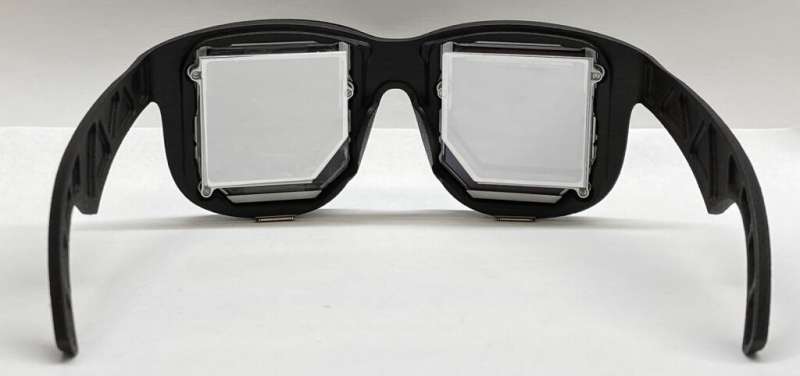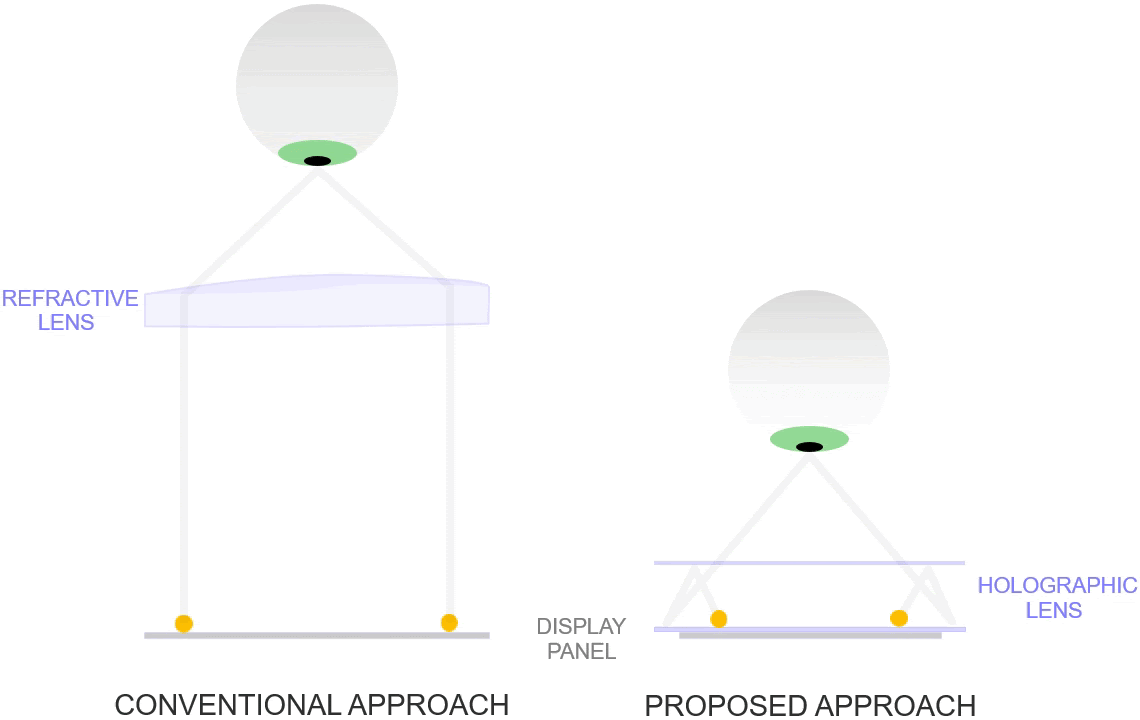July 2, 2020 report
Facebook designs ultra-thin VR eyeglasses

Facebook said this week it has developed the thinnest virtual reality headset in the world. Although it remains a prototype for now, the device does away with the bulky boxlike headgear commonly associated with virtual reality setups and instead sports the look of a large pair of sunglasses with lenses just under .3 inches thick.
Facebook, which released a report on the prototype Monday, says it developed "a new class of near-eye displays" incorporating holographic components and using a refraction technique that enables compression of light sufficient enough to greatly reduce the size of the device.
Instead of thick refractive eyeglass lenses that must be placed far apart from the display panel, the prototype uses a technique called "polarization-based optical folding" that permits use of thinner lenses and a compressed region between lens and display.
Implementing holography, the headset can create vividly colored, three-dimensional images far superior to graphics produced with LEDs common in todays devices. The prototype currently produces images in shades of green only, but Facebook researchers expect to achieve full color later in the development process.
In the report prepared by Andrew Maimone and Junren Wang of the Facebook Reality Labs, they expanded on the inner workings of the prototype.
"You may be familiar with holographic images seen at a science museum or on your credit card, which appear to be three-dimensional with realistic depth in or out of the page," they said. "Like these holographic images, our holographic optics are a recording of the interaction of laser light with objects, but in this case the object is a lens rather than a 3-D scene."

They added: "The result is a dramatic reduction in thickness and weight: The holographic optic bends light like a lens but looks like a thin, transparent sticker."
The report is slated to be formally presented at the SIGGRAPH annual conference on computer graphics and virtual reality developments to be held July 19-23. Ironically enough, the conference this year will be a virtual one online, thanks to COVID-19.
Facebook has recently consolidated its efforts in the field of virtual reality and focused on standalone headsets such as the Oculus Quest. CEO Mark Zuckerberg purchased the Oculus VR startup six years ago for $2 billion. At the time, he stated: "Oculus has the chance to create the most social platform ever, and change the way we work, play and communicate."
The latest prototype suggests the company recognizes that however virtual reality is incorporated into rapidly expanding social media frontiers, comfort will play a key role. Despite their impressive capabilities, headsets such as the Oculus Quest and Microsoft's HoloLens did not gain widespread acceptance largely due to their bulkiness and discomfort for users who typically wore them for extended periods of time.
Facebook hopes to develop models weighing about a third of an ounce, compared to the Oculus at 20 ounces and HoloLens at 1 1/4 pounds.
Google is stepping up its efforts in augmented reality. Earlier this week, it purchased North, a company specializing in augmented reality glasses. It continues to support development of Google Glass, a virtual computer in eyeglasses. And Apple is working on a virtual reality headset and augmented reality glasses slated for release sometime in 2022.
More information: research.fb.com/blog/2020/06/h … ght-virtual-reality/
© 2020 Science X Network




















